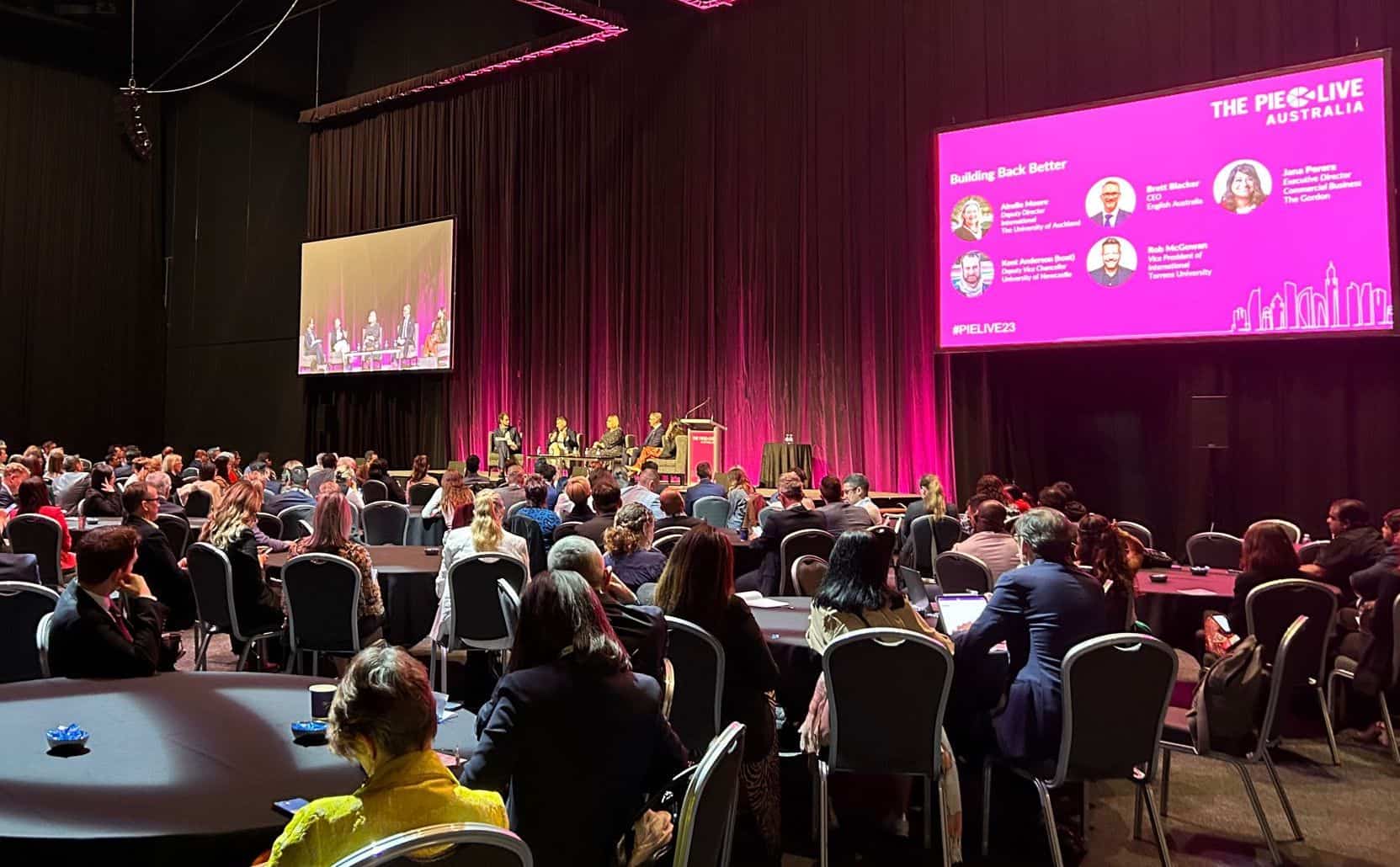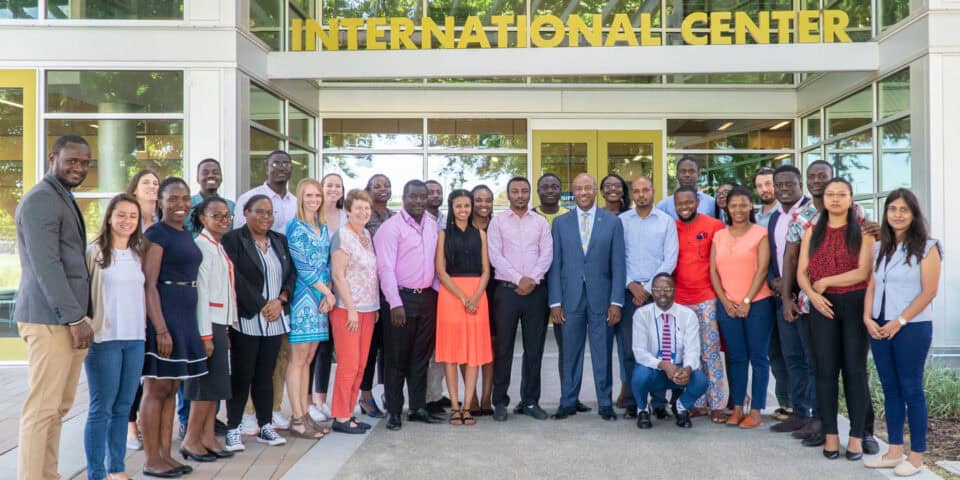There are concerns that public sentiment towards international students and the international education sector in Australia may decline in the next years, with stakeholders calling for more to be done to celebrate their positive impacts.
Warnings arose during the opening panel of The PIE Live Australia conference in Gold Coast on July 24.
Leading the panel as chair, deputy vice chancellor of University of Newcastle, Kent Anderson, stated that approaching the outbreak of the global health crisis in early 2020, public sentiment towards the sector was “neutral”.
“I don’t think it was positive or negative because I don’t think it impacted on most people,” he told the audience.
“For the larger Australian society, [international education] was neither here nor there. I’d like to see us move back towards positive.”
There is “pressure coming” with a number of the federal reviews, such as the Migration Review, the Universities Accord and the Joint Standing Committee on Foreign Affairs, Defence and Trade inquiry into international education, CEO of English Australia, Brett Blacker, continued.
“I still think as an industry, we’ve failed to really represent our value within the Australian populace,” he said.
He commended IEAA, which recently launched a national marketing campaign to address the issue, but added that the sector could become “almost a victim of our own success” following the Covid rebound.
“Where I see the influences that are coming, particularly in federal government on student volumes… is that international students are being seen as the problem for accommodation and the rental crisis, even though we’re not back to 2019 levels, when we weren’t at a crisis level,” he detailed.
“We all need to own trying to change the narrative around international students”
A recent report from a conservative think tank in Australia calculated that international students are expected to “take up” almost 55% of net new accommodation on average across the country in this financial year.
The sector needs to come together, specifically within the English language component, which he referenced as an “easy target”, Blacker added.
“We all need to own trying to change the narrative around international students, the value they play and the English language proficiency, because it’s a really easy target for the government to point to English language standards as a quasi indicator for poor quality.”
“We are in fact improving year on year in our academic performance,” Blacker continued.
As government looks to adapt and change policies affecting the international education sector, “we need to be on the front foot working with government about what represents a genuine student”, he added.
“I do think it’s a collective failure for us to be able to put those good news stories out around students. I know the good news doesn’t sell news, but we are the champions of that story.”
Asked whether the sector had been allowed to “run a little bit too hot” in the lead up to the pandemic, executive director for commercial business at Victoria-based TAFE provider The Gordon, Jana Perera, acknowledged that Blacker’s comments were pertinent given Australia’s skills shortage.
The vocational education system is a “great foundation” for students arriving in Australia, she said.
“The employment rate is really high for students who completed vocational programs. We need people in industries like aged care, in nursing and hospitality, they are crying out for workers, which is exactly what the vocational system is all about,” Perera explained.
The federal government has “obviously recognised” the value add of the VET, as well as higher education, sector to fill skills shortages, she continued. The Job Skills Australia initiative – announced in November 2022 – is evidence of that, she suggested.
In addition to international students’ contributions to Australia, panellists emphasised the importance of meeting their expectations.
Torrens University, which panel chair Anderson described as the “biggest rebounder” from the pandemic and has displayed “phenomenal” growth from 2022, was best placed as a result of its online first approach.
“We couldn’t prepare for Covid, no one could,” said Rob McGowan, vice president of International at Torrens University. But with 20% of students exclusively online and the other 80% learning in a hybrid environment, the institution had found a gap in the market in 2019.
“We found ourselves quite well prepared for a dramatic change because of that innovation we went into 2020 with… the university that we built [had] no single dependency on one audience or one delivery model,” he said.
“We have an obligation to students to focus on their career readiness from day one and that be embedded in the curriculum so that it’s not optional it’s mandatory for students. By mandating that, we guarantee that there are graduate attributes that Torrens students take into the market, which then will support that transition.”
Giving a New Zealand perspective, Ainslie Moore, deputy director for International at University of Auckland, noted that “if we don’t position them for employment success in their home country, then we’re not delivering”.
“We need to be thinking about what their choices are, what we teach them and why the skills we give them will be useful to them in their home country.”











